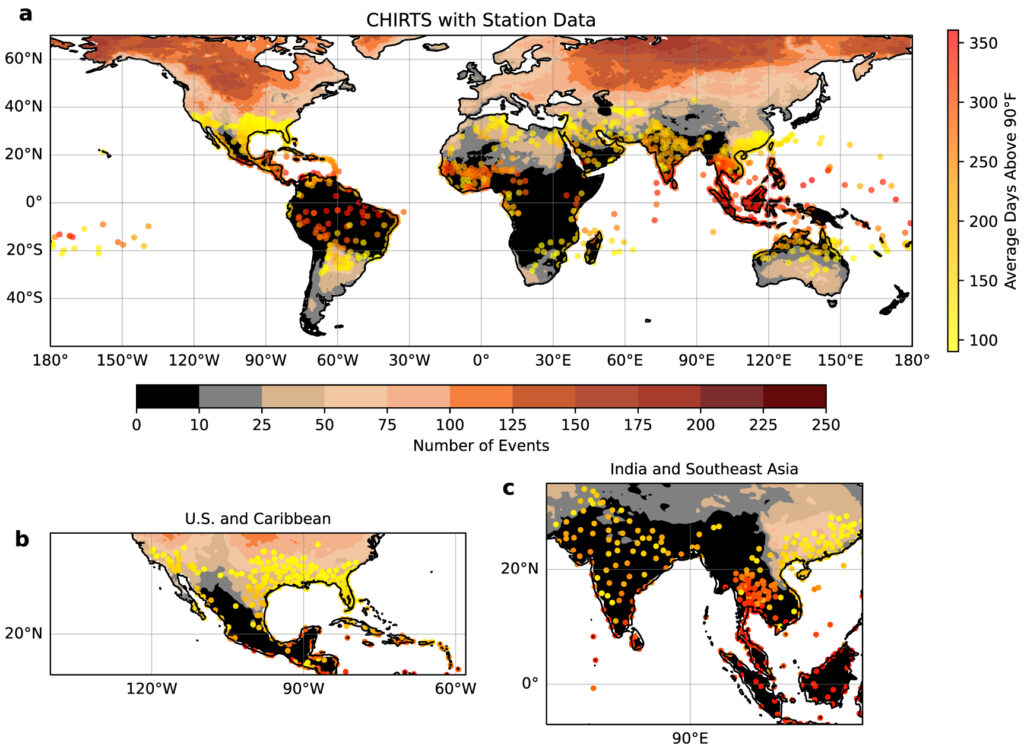By Diana Udel, University of Miami News
Researchers at the University of Miami are providing improved insights into how extreme heat should be defined and addressed. The findings were published in an article in the journal IOP Environmental Research: Climate.
While most heat research and policy have focused on episodic heat waves typical of temperate regions, their research offers a comprehensive approach to identifying and managing chronic heat — persistent, high temperatures that affect billions across the globe for extended periods time.
“Much of our current understanding of extreme heat and emergency responses is based on short-term events like heat waves,” said Mayra Cruz, the lead author of the study and a doctoral student in the Department of Environmental Science and Policy at the University of Miami Rosenstiel School of Marine, Atmospheric and Earth Science and the Abess Center for Ecosystem Science and Policy. “In much of the world, people are exposed to dangerous heat every day for months at a time. That’s a chronic crisis — not just an emergency.”

Often overlooked in traditional studies, this study introduces new metrics to identify regions that experience chronic heat. By distinguishing between acute heat (temporary spikes in temperature) and chronic heat, the researchers highlight how current interventions and policies fall short for those living in long-term high-heat environments.
The authors propose that adapting to chronic heat doesn’t demand entirely new innovations, but rather thoughtful modifications to current strategies that align more closely with the everyday experiences of those most affected.
They also lay out six key research priorities to further integrate chronic heat into global conversations on climate adaptation and public health. These include the centralization for better data sharing for more effective decision making and effective response, improving the gathering of hyperlocal heat data, revising and expanding existing heat metrics and thresholds, improving long-term heat-health surveillance to understand increase of diseases and morbidity, gathering qualitative data through a mixed method approach to enhance and fill data gaps, and further collaboration across various disciplines, practitioners and affected individuals and communities.
“The risks from chronic heat aren’t just about the heat hazards. Instead, they fundamentally depend on the individual and societal circumstances that drive up exposures for some people and households,” said Katharine Mach a co-author of the research and a professor and chair of the Department of Environmental Science and Policy at the Rosenstiel School. “Addressing these intensifying risks through a wide range of adaptive actions improves health, well-being and economic productivity.”
This study, titled “Where heat does not come in waves: A framework for understanding and managing chronic heat,” was published on May 9 and draws on an extensive review of existing literature to identify knowledge gaps and propose a globally relevant framework. It also offers practical guidance for researchers, city officials, practitioners and communities, especially as more cities adopt chief heat officers and create more effective heat action plans.
Funding was provided by the National Oceanic and Atmospheric Administration (NOAA), Grant No. NA20OAR4320472-T1-01, and the University of Miami Laboratory for Integrated Knowledge (U-LINK) program. For more information, visit https://news.miami.edu/rosenstiel/stories/2025/05/new-framework-redefines-how-we-understand-and-manage-chronic-heat.html.
Sign up for The Invading Sea newsletter by visiting here. To support The Invading Sea, click here to make a donation. If you are interested in submitting an opinion piece to The Invading Sea, email Editor Nathan Crabbe at nc*****@*au.edu. Banner photo: The sun over the Miami skyline (iStock image).



